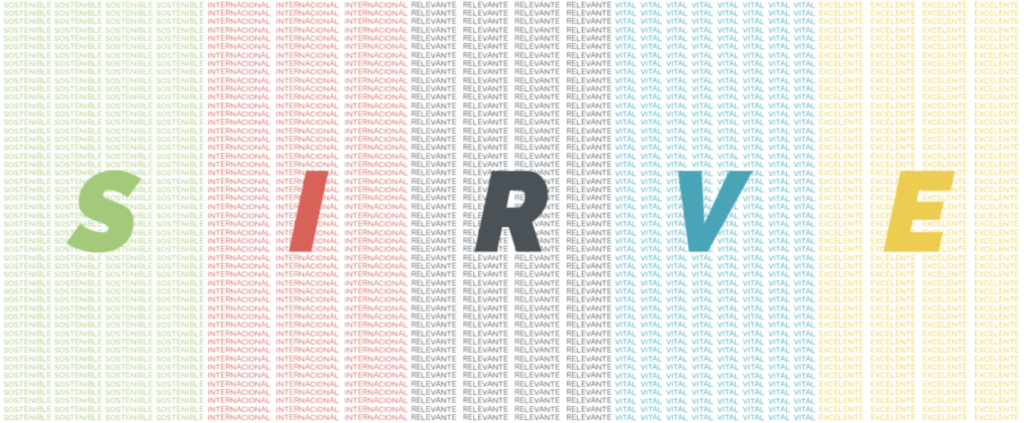
Strategy
UPV promotes the SIRVE strategy, which will lead to it being established as a Sustainable, International, Relevant, Vital and Excellent university by 2027.
In the field of sustainability, the Universitat Politècnica de València has set three strategic goals:
UPV_Sustainable TARGET
OSUS1: To achieve carbon neutrality at its three campuses
UPV has a plan that will reduce energy and water consumption, and increase the production of renewable energy. Sustainability goals involve the entire university community in actions as commonplace as people’s daily commute. Studies have been conducted that indicate by following this track, climate neutrality can be achieved by 2030.
The Universitat Politècnica de València’s commitment is not only a social duty, but also an opportunity to generate knowledge. The university will take advantage of its polytechnic nature to transfer knowledge from its research groups to students, companies and public administrations through “Living Labs”, thus contributing to the Sustainable Development Goals (SDG).
Approved plans and programs:
- Infrastructure program
- Sustainability and Energy Efficiency Program
- UPV Decarbonization Program
- Infrastructure Environmental Sustainability Program
- Sustainability and Green Plan Program
- UPV Living Lab Initiatives Program
OSUS 2: To develop stable and alternative sources of financing
UPV strives to establish stable financing channels that complement public resources. To this end, it will promote public-private collaboration, particularly in ongoing training activities and applied research.
It will also promote sponsorship programs and business chairs and encourage shareholder participation in technology-based companies created at UPV.
In this way, on the one hand, a certain autonomy of the institution will be guaranteed and, on the other hand, the quality of teaching and research will be improved by making both relevant due to their socioeconomic impact and responding to the needs of society and the citizenry.
Approved plans and programs:
- Sponsorship Project (Social Council)
- Sponsorship Office (VIC)
- STEAM Chair (Social Council)
- Corporate Chairs (VEFP)
- Infrastructure Program (VCAMPUS)
- Sustainability and Energy Efficiency Program (VCAMPUS)
- UPV Decarbonization Program (VCAMPUS)
- Space Equipment Program (VCAMPUS)
- Support to the research management needs of new funds by the research structures (VIT)
OSUS3: To adapt UPV’s structure to a flexible management of shared resources that makes it possible to address the changes required by society
UPV stands out for implementing innovative technologies in its management, which involves addressing challenges such as cybersecurity, technological obsolescence and increasing costs.
In addition, transformations in work modalities, such as automation and remote work, require the adoption of new organizational models.
To guarantee the viability of the service, UPV will design a flexible structure that allows efficiently managing shared resources. This will involve allocating resources based on results and needs, as well as adopting innovative technologies to provide efficient services and guarantee the viability of the system.
Approved plans and programs:
- Cultural programs (VACTS)
- UPV Decarbonization Program (VCAMPUS)
- Explorer Program (B Santander) (VEE)
- Infrastructure program
- Space equipment program
- Integration of the Information System. UPV Employment Observatory (VEFP)
- Co-financing to Improve technological capacity, quality and interoperability of curriculum information management systems or CRIS systems (VINV)
- CPI Foundation (VIT)
- Strengthening of UPV Innovation actions and strategy (VIT)
- PIME Program Innovation and Educational Improvement (VPOA)

